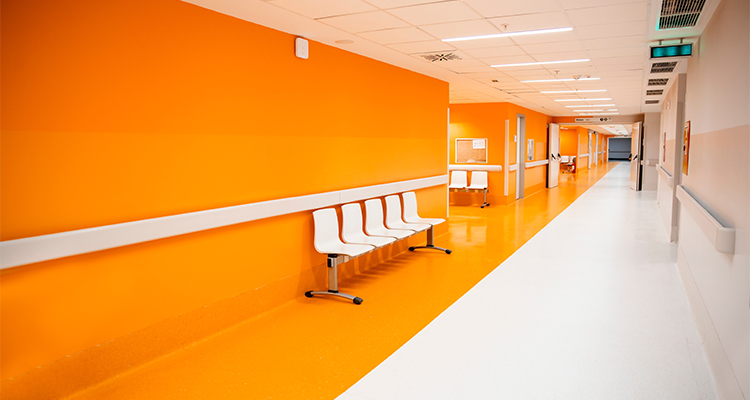The healthcare industry in India is evolving rapidly, with increasing emphasis on hygiene and infection control. One critical aspect of this transformation is the adoption of antimicrobial surfaces. These surfaces are engineered to prevent the growth of harmful microorganisms, playing a vital role in healthcare settings like hospitals and clinics.
Post-transplant patients are usually at risk of acquiring infectious diseases due to poor immunity and extended welfare in hospitals as part of the transplant procedure. It is particularly important for these entities to have integrated antimicrobial surfaces, which can help prevent infections. These surfaces offer tremendous value and elevate the level of safety and safety management, allowing for other critical medical activities to be carried out.
The impact of these surfaces on patient safety, health outcomes, and infection prevention is profound, making them an essential component of modern healthcare environments.
The Growing Need for Antimicrobial Surfaces
During operating or surgical procedures in hospitals and clinics, everything needs to be practically virus and bacterial-free. This is crucial along with the frequency of the work because bacterial or viral infections within a hospital can lead to detrimental health, increased hospital stays, and can even, in acute cases, become life-threatening. It is extremely important to use standard methods of cleaning, but they have limitations, especially in high-traffic areas. This is where antimicrobial surfaces come into play.
These bacteria, viruses, and fungi-resistant surfaces are not passive layers; they inhibit the colonization of all sorts of pathogenic microorganisms. Bacterial growth on commonly touched surfaces can be avoided with the use of PVC materials infused with Silver Ion technology to effectively stop the proliferation of microorganisms. This is especially helpful in high-risk environments such as operating theatres, patient wards, and ICUs
Benefits of Antimicrobial Surfaces
- Infection Control: The threat of infections is greatly minimalized with the use of antimicrobial surfaces. In the context of a hospital, surfaces such as walls and, floors and corners can hold and proliferate bacteria. With the use of antimicrobial surfaces, healthcare establishments can reduce the risk of harmful pathogens transmission, creating an ideal environment for the patients, the healthcare workers, and the visitors.
- Durability and Ease of Maintenance: These surfaces have high durability and are not hard to maintain. Antimicrobial wall cladding and panels do not break down easily and are not hard to clean like conventional materials, which get damaged after a certain period. This durability makes them the best option for healthcare establishments since hygiene needs to be maintained there for a long time without the constant need for routine replacements.
- Compliance with Health Regulations: More laws on the control of infections are being established, and hospitals are being targeted to maintain higher standards of infection control in India. Hospital facilities adopting antimicrobial materials will, therefore, be able to meet the national standard policy requirements, avoid incurring penalties, and maintain the desired standard of care.
- Enhanced Hygiene and Safety: The antimicrobial surfaces are adopted primarily due to their capabilities to improve hygiene standards. Healthcare facilities should be safe for patients who are highly vulnerable, and adopting these surfaces guarantees minimal bacterial, fungi and viral contamination. This is particularly important for immunocompromised patients because the slightest exposure to bacteria can cause serious health problems.
- Sustainability and Eco-friendliness: Many antimicrobial surfaces, such as those offered by us at Kleenclad, are also environmentally friendly. For example, our all wall cladding products are 100% recyclable and contain no harmful chemicals. This means that healthcare facilities can maintain high hygiene standards while also contributing to sustainability efforts.
The Future of Antimicrobial Surfaces in India
The adoption of antimicrobial surfaces in Indian healthcare is expected to grow in the coming years. With increasing awareness about infection control, hospitals and clinics will continue to explore advanced solutions like antimicrobial wall cladding to meet the rising demand for safer, more hygienic environments.
At Kleenclad, we are committed to shaping this future. Our products are not just about maintaining hygiene—they are about creating safer spaces for patients and healthcare providers. As India’s healthcare sector expands and modernizes, we aim to be at the forefront, offering solutions that are both innovative and essential for the well-being of the nation.
For example, our Antimicrobial Sheet incorporates Polygiene BioMasterTM silver ion technology, which provides lasting protection against bacterial, fungi and viral growth. This technology is particularly beneficial for areas with high footfall and where maintaining sterility is crucial, such as ICUs, surgical theatres, and food preparation areas within healthcare facilities. Not only are our surfaces effective in combating bacteria, but they are also designed to be aesthetically pleasing and durable, with resistance to scratches, chemicals, and moisture.
Conclusion
Antimicrobial surfaces are playing a crucial role in transforming Indian healthcare. From reducing infection rates to meeting regulatory compliance, these surfaces are indispensable in today’s healthcare landscape. Kleenclad’s range of hygienic cladding products offers an ideal solution for healthcare facilities striving to achieve the highest standards of hygiene, safety, and durability. As we continue to innovate and lead in this space, we remain dedicated to enhancing the future of Indian healthcare through superior surface technology.





